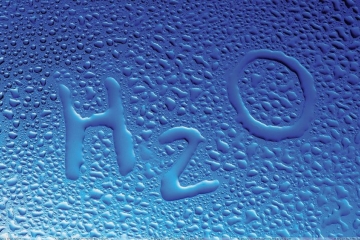 Published: 28. 06. 2016 - 11:51
Published: 28. 06. 2016 - 11:51 In the interests of acting sustainably, Kampmann GmbH is supporting the trend towards cooling media that have low potential to cause global warming. In this context, the use of water in particular as the heat transfer medium in the building makes it possible to provide environmentally responsible air conditioning. H2O has a global warming potential (GWP1) of zero, meaning it has a uniquely low greenhouse effect. Unlike other "natural" refrigerants, moreover, water is neither toxic nor inflammable.
An air conditioning system for buildings that uses a medium such as water to transfer the cooling energy has enormous advantages over extensive direct evaporation pipe systems that require large quantities of refrigerant.
Versatile to use
Since they use water as the medium, chilled water air conditioning systems can be readily extended with a wide range of products. It is, thus, very easy to integrate components with high ecological value such as CHP units, wood fired boilers and solar-driven heat generators and chillers, as well as a large number of different terminal appliances.
Advantageously priced
In selecting this system, while its installation costs are similar to those of a direct evaporation system, the primary focus will be on its running costs. The lower volume of refrigerant required, the overall efficiency and the opportunity to integrate resource efficient systems all argue in favour of chilled water air conditioning systems.
Sustainable in terms of procurement
Since legislators are making high demands of air conditioning systems in terms of ecological compatibility, regulations have been developed that prescribe a minimum standard of energy efficiency and that limit or prohibit the use of various refrigerants. These requirements are constantly changing, meaning that the chillers themselves sometimes have to be replaced. With a chilled water system, it is significantly easier to adapt to changing conditions.
Given the ecological and economic benefits of water-based cooling equipment, it is possible to provide affordable and environmentally responsible air conditioning for buildings, for today and for the future.
1) The GWP expresses the factor by which a gas such as a refrigerant, when released into the atmosphere, increases the natural greenhouse effect, compared with the same mass of CO2 (measured as CO2 equivalent; the GWP of one molecule of CO2 is 1)




